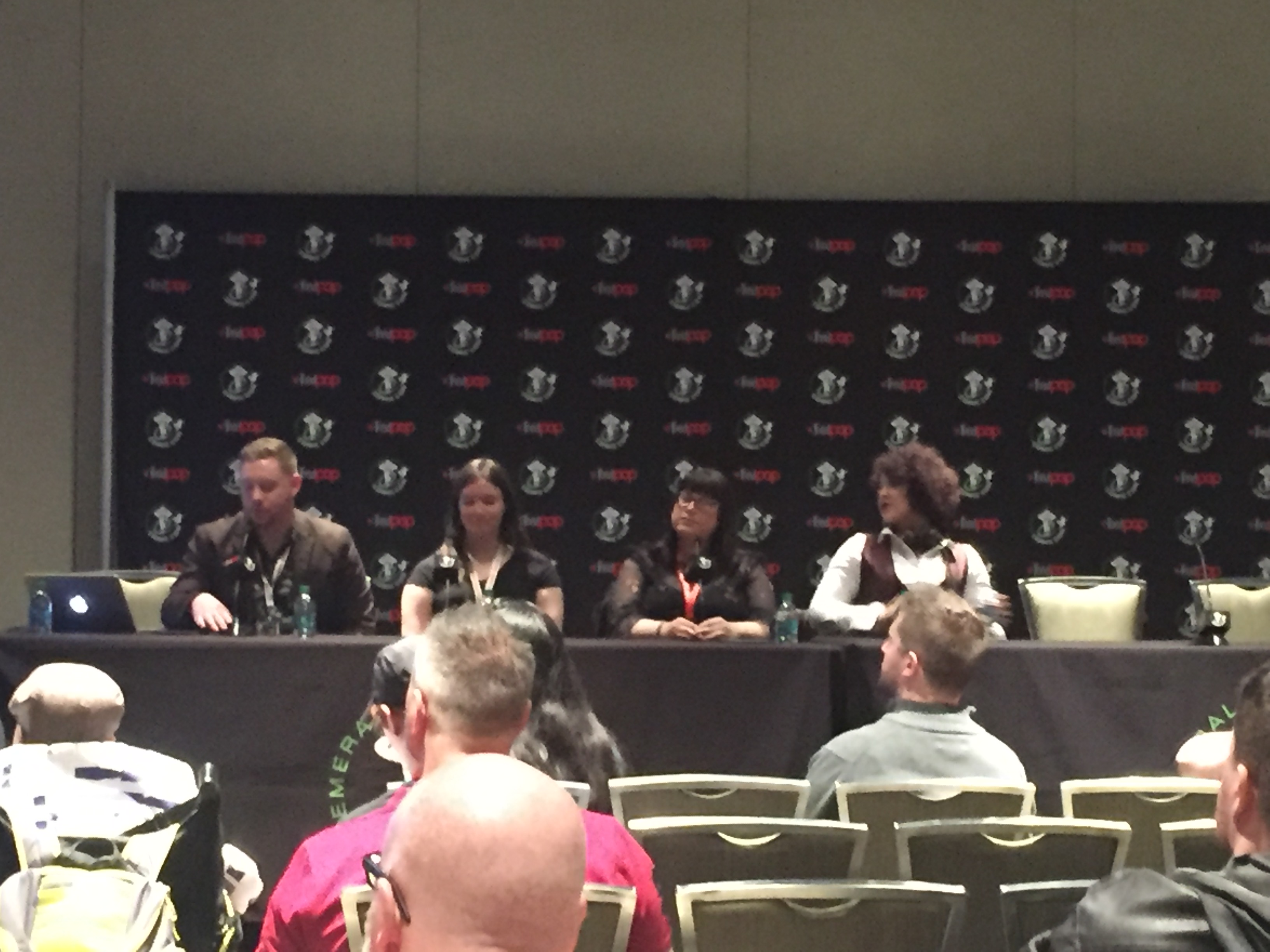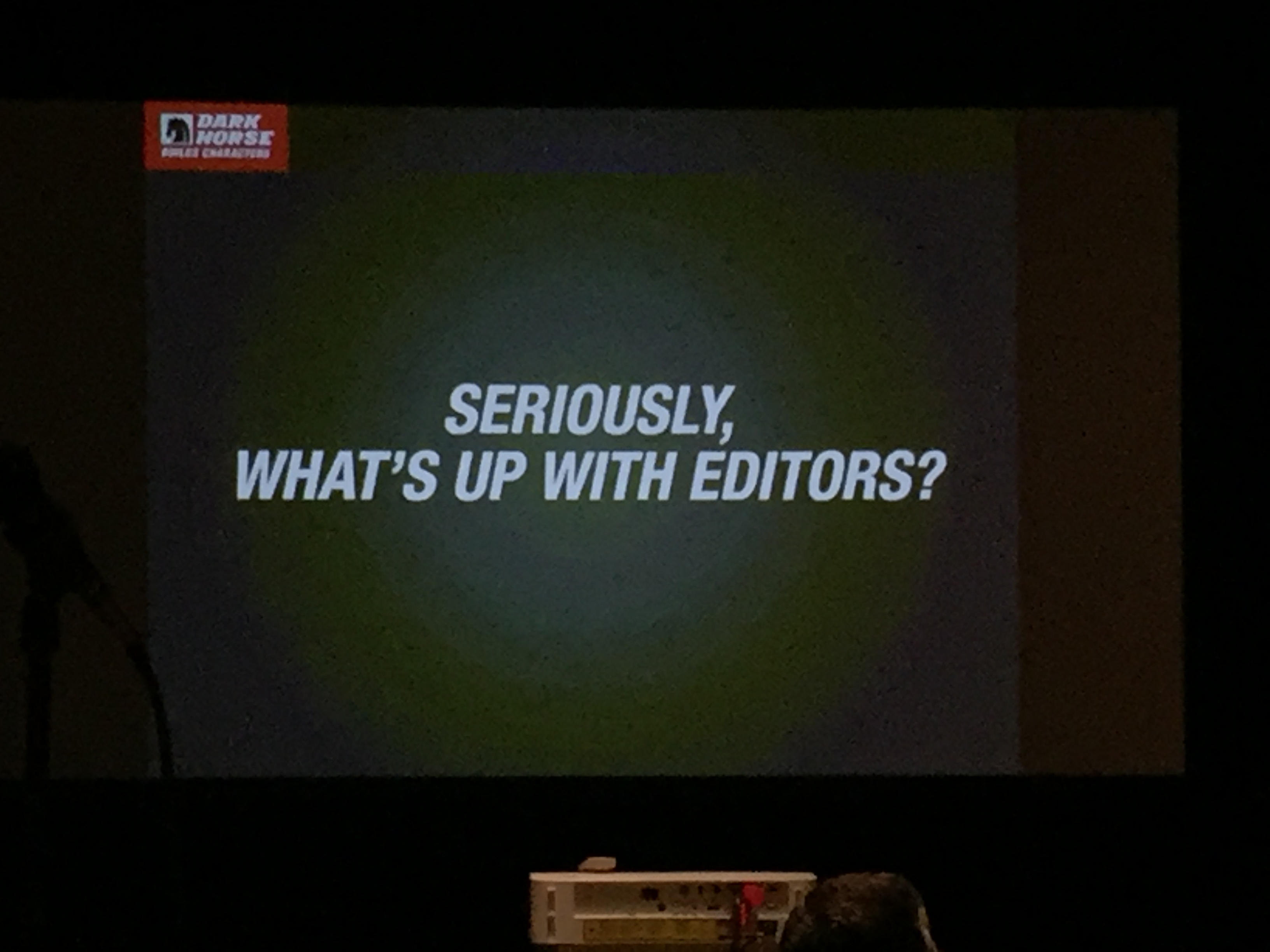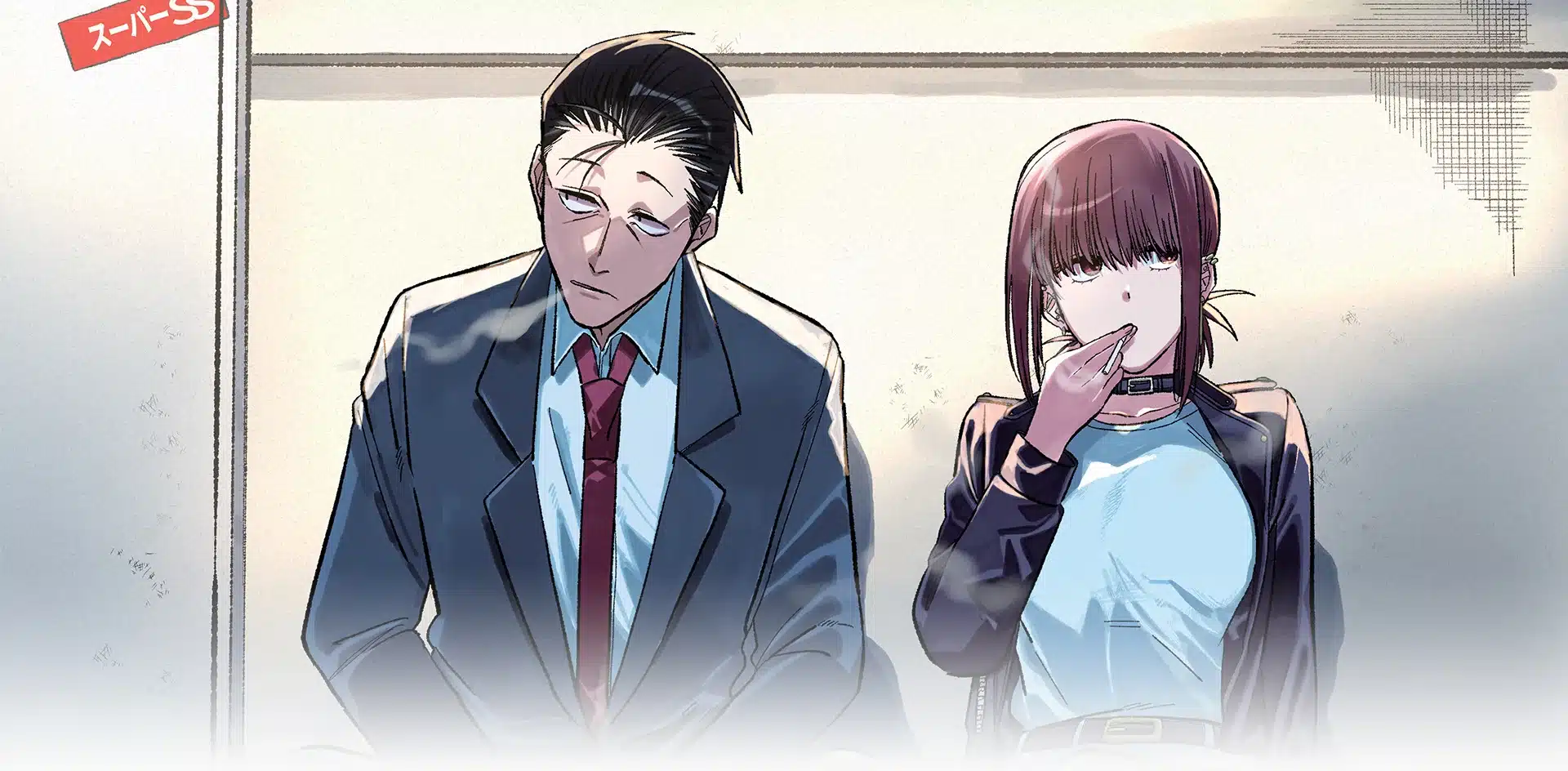
By Joe Grunenwald
Everyone knows what comic book writers and artists do, but probably not everyone knows exactly what a comic book editor does. ECCC’s “Seriously, What’s Up With Editors?” panel attempted to answer that own question with a discussion, moderated by Dustin Nelson, that included three of comics’ busiest editors: Sarah Gaydos of IDW, Desiree Wilson of Oni Press, and Katii O’Brien of Dark Horse.
The panel began with each of the panelists presenting an overview of the books they work on. Gaydos spoke about licensing properties for titles like Jem & The Holograms, Goosebumps, and Star Trek, as well as working on creator-owned books like The Infinite Loop. She said that the licensed comics take up a majority of her day.

O’Brien next spoke about the books she’s working on, all of which are creator-owned, and 90% of which are Hellboy-related titles. While reviewing her series she mentioned how easy it is to lose track of on-sale dates, given the number of titles that editors work on in various stages of production at the same time.
Nelson asked what inspired the panelists to become editors, and Wilson said jokingly that it was an accident. She took a writing for comics class at Portland State, which was taught by Bian Michael Bendis and David Walker. While there she met Scott Allie, which helped her get her foot in the door at Dark Horse. She said she applied for a job at Oni and interviewed with no expectation of getting a job, and they ended up offering her a position.
Gaydos said that she always knew that she wanted to do something creative but in more of a ‘behind-the-scenes’ role – she enjoys writing but was more interested in guiding people to help them produce their best work. She described being at Wildstorm Studios as similar to being in “comic book college,” with the studio being a place where she could learn about all aspects of how comics are produced.
O’Brien said that she has always loved stories, and that when she was younger she thought she wanted to be a writer. Eventually she didn’t feel passionately enough about it to pursue it professionally, she said, but that by editing she could become what is essentially a full-time reader, helping talented people put forth their best work. She described the process of working with creators, asking them questions, all in service of them getting their story across in the clearest way possible. She also mentioned the amount of administrative work that is involved in the job, but said that the creative part of it is the most rewarding piece.
Speaking about the administrative side of being an editor, Gaydos said that working on licensed titles involves working with both the creative side of the books and with the corporate owners of the properties, making sure that they are happy with and approve of what’s being produced. Nelson concurred, adding that the process of working on licensed properties is extremely complicated.
Next, Wilson spoke about the books that she works on, including The Ballad of Sang, The Damned, Kaijumax, Sci-Fu, Heartthrob, and Junior Braves of the Apocalypse. She said that she’s the newest editor at Oni, and that she adopted an entire slate of titles from another editor.
When asked what the panelists think is the biggest misconception about being a comic editor, O’Brien replied that people think they’re primarily proofreaders. In fact, she said, a lot of publishers have dedicated proofreading departments outside of editorial. Gaydos said that a big misconception is that all editors are the same. Major corporate publishers have more ‘top-down’ editorial direction, where other companies are more self-driven, and she said that the level of editorial control is very variable from project to project. Wilson said that people think editing is a lot more of the fun stuff, when there is actually a lot of administrative work that goes into editing – answering emails, chasing people on deadlines, receiving artwork, etc. It’s not as glamorous as some people think, she said, and Gaydos stressed that the amount of organization needed to be an editor is crucial in terms of tracking deadlines and maintaining relationships with creators.
Nelson asked the panelists if they have any advice for people who want to become editors. Gaydos said that aspiring editors should have a level of technical proficiency, and be able to figure out a way to let technology help, particularly when it comes to keeping track of all of the moving parts in comics. O’Brien seconded the need for organization, and the need for the ability to adapt to variables. Gaydos also mentioned the importance of an understanding of the book market versus the direct market, as the two are very different. She also mentioned just doing it, offering your services as an editor to those who might need them. Wilson stressed the importance of internships as a great way to learn what the editorial process is like. Dark Horse and IDW both offer internships and have hired interns in the past, while Oni currently does not. Wilson also reiterated the importance of understanding the book market and how working with that market is very different from working with the direct market. She suggested that editors should read everything they could get their hands on, and also joked that that aspiring editors should not to expect to make a lot of money.
Gaydos suggested that editors should familiarize themselves with the language of the various aspects of comics. Reading books on the different pieces of the process can help them to learn how to communicate what you need with the various creators. She also suggested practicing how to do the different pieces – penciling, inking, lettering – even if you’re not very good at it, to get into the mindset of what is needed and how to communicate more clearly. O’Brien also mentioned the need to think about all of the steps of the process as early as possible in order to avoid mistakes that have to be corrected late in the game. In particular she mentioned the need for artists to leave space for dialogue and make sure that all speaking characters fit into the panel. Speaking of things happening late in the game, Wilson mentioned that you have to be prepared for things to fall apart. She recounted a story of license owners changing their mind about something very late in the game on the production of a comic and the editor on the title having to scramble to correct things based on the licensor’s requirements. She also talked about, when working on creator-owned books, adhering to what the creator wants even if you disagree with it.
An audience member asked the panelists whether writers or artists drive them crazier in terms of getting work done and in to them. Gaydos replied that it’s important to remember that writers can work much more quickly, while artists are working every day on a single thing and need more communication to make sure they’re staying on time. Wilson also mentioned the need to give notes constructively and carefully so as to maintain good relationships with your creators, while O’Brien mentioned the importance of communication with creators and voiced her occasional frustration with people not getting back to her in a timely manner. She also talked about how meticulously she schedules with creatives in an effort to avoid issues, including planning around peoples’ vacations and holidays.
An audience member who is an experienced editor in magazines and the technical field asked how can he transition into comics. Having just done this less than 7 months ago, Wilson suggested keeping an eye on the trade presses for job listings in publishing – Publisher’s Lunch in particular is a paid service that she recommended. She also mentioned social media as a place where jobs are posted. When applying, she recommends highlighting translatable skills that can apply from previous jobs to working in comics. She also said to keep in mind what the publishers may be looking for and to hope for the best.
Gaydos stressed the importance of aspiring editors being familiar with the comics industry beyond having read them as a kid, and that being aware of trends and the direction the industry is moving is helpful. Wilson also mentioned having your own comic to show as proof that you know what you’re doing. Nelson mentioned that the comics industry is a small field, and that most people coming into it are not already in comics, so if you see something that looks like you could be a good fit for it, go for it. He said that networking is also important, as well as being a fan and understanding the product.
The final question came from an audience member curious about what other jobs the panelists had worked in as they ‘clawed their way up’ into becoming editors. Gaydos said that she worked as a receptionist and later as executive assistant to the VP at Wildstorm, which led to some editing and assistant editing while she was working those other jobs before she became a full-time editor. Aside from the internships she mentioned earlier, O’Brien said that she was a full-time project manager and did some freelance work before getting into comics full-time.
Wilson said that she feels she got genuinely lucky, having finished school, applied for the editorial job, and got it. She also said that it helped that she networked with DeConnick and Fraction, with Brian Michael Bendis, and with others, so that by the time she was in the door people knew who she was.
On that note, Nelson and the audience thanked the panelists for their time, and the panel ended.







NextinCareer.com strives to provide you a platform to solve your queries and doubts related to your career. May it be What do you want to Study next or Which career option you want to pursue in future
Comments are closed.